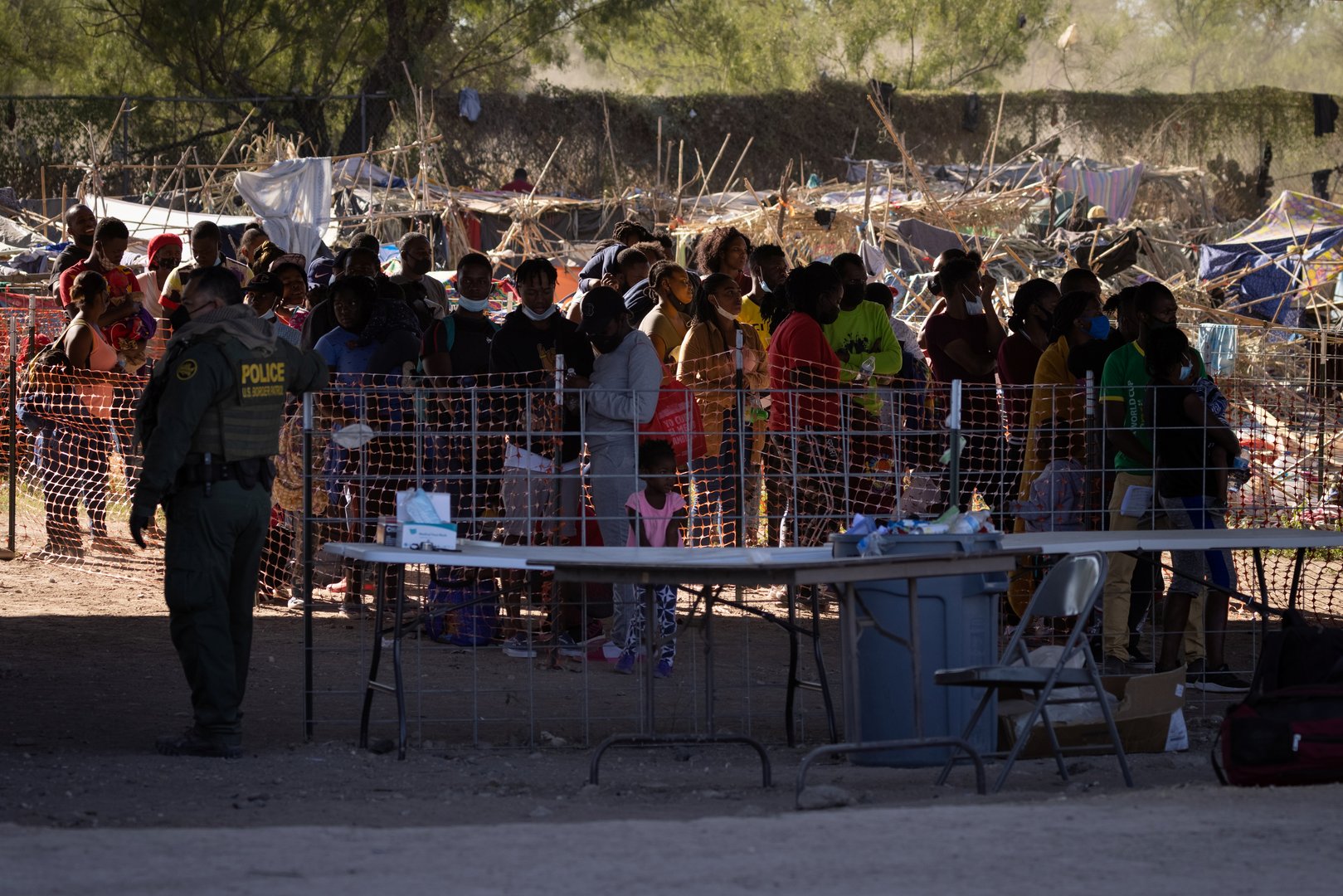An impromptu border camp that roiled U.S. politics was emptied of thousands of Haitian migrants by Friday, with most remaining in the United States for now and others expelled on deportation flights or returned to Mexico.
Reuters witnesses said the shanty town-like jumble of makeshift shelters and tents had all but disappeared from Del Rio, Texas, with workers clearing the last debris from the banks of the Rio Grande bordering Mexico. Texas State Troopers lined the river bank to discourage new crossings.
U.S. Department of Homeland Security Secretary Alejandro Mayorkas said nearly 30,000 migrants had been encountered in Del Rio in the past two weeks.
More than 12,000 will have a chance to make their case for protection before a U.S. immigration judge, an estimated 8,000 voluntarily returned to Mexico, and 2,000 were expelled to Haiti. The fate of others detained is to be decided.
Seeking to balance outrage about treatment of the migrants at the weekend by some border guards on horseback, Del Rio Mayor Bruno Lozano praised the agents for trying to provide food and medical care in tough circumstances.
“To have no fatalities when we had 15,000 people is a phenomenon, I am just very grateful,” Lozano said, citing the camp population at its highest.
Mayorkas vowed a swift investigation of an incident in which the mounted guards used reins like whips.
As well as the Biden administration’s contentious use of expulsion flights back to instability in Haiti, Mexico has sought to bus and fly Haitians to its southern states, far from the U.S. border.
On Friday, Reuters reported that the International Organization for Migration (IOM) had formally asked Brazil to receive some of the Haitians from the camp, according to two sources with knowledge of the request.
Many of the Haitians arriving at the U.S. border had previously lived in Brazil and Chile, while others have transited through the South American countries.
U.S. President Joe Biden has faced criticism in recent days over the expulsions to Haiti, including in a sternly worded resignation letter from the U.S. Special Envoy to Haiti, Daniel Foote, who said the Caribbean nation was a collapsed state.
The U.S. government in May extended temporary protection from deportation to Haitians in the United States, citing a political crisis, rights abuses, crime and lack of access to food, water and healthcare in the Western Hemisphere’s poorest country.
Since then, Haiti’s president has been assassinated and it suffered a destructive earthquake.
Despite the pressure, the Biden government has kept up flights, aware that letting in more Haitians will encourage others to try.
At least five more flights taking Haitians from the border camp were scheduled on Friday, flight tracking website FlightAware showed.
Thousands more Haitians were on the road through Central America, with others among around 16,000 awaiting boats into the jungles of the Darien Gap in Panama, a crucial bottleneck on the journey north.
PUSHED SOUTH
The Haitians who crossed back to Mexico in recent days were met by Mexican officials who urged them to return to Mexico’s southern border with Guatemala to request asylum in Mexico.
“We’re not taking them out of the country,” INM chief Francisco Garduno told Reuters. “We’re bringing them away from the border so there are no hygiene and overcrowding problems.”
Mexico’s refugee agency Mexico’s Commission for Refugee Assistance (COMAR) is overwhelmed and scheduling appointments months away. It is expecting a record of around 100,000 applications this year.
Official data show Haitians are far less likely to have asylum claims approved in Mexico compared with many nationalities.
Last year, of all asylum claims that were formally resolved, only 22% of Haitian cases won approval, compared with 98% for Venezuelans, 85% of Hondurans, 83% of Salvadorans and 44% of Cubans. So far this year, the Haitian number is up to 31%.
Willy Jean, who spent two fruitless months in the Mexican city of Tapachula, said if Mexico really wanted to help, it should allow them to make their applications elsewhere.
“Tapachula’s really tough, really small, there’s lots of people,” he told an INM agent trying to persuade him to go south. “There’s no work, there’s nothing.”







Click here to change your cookie preferences